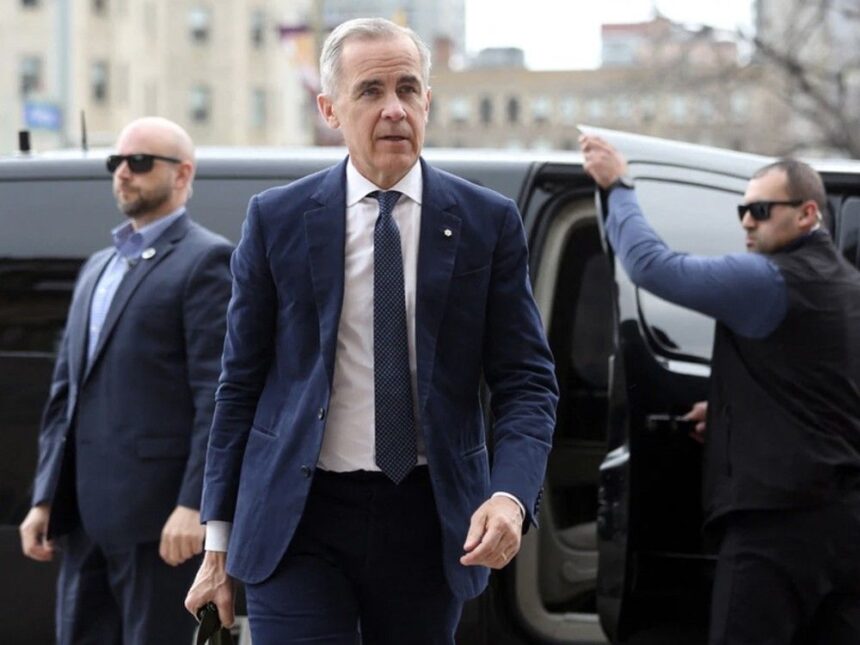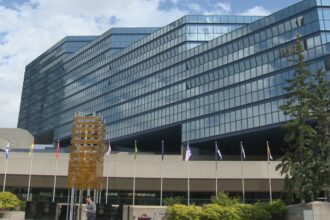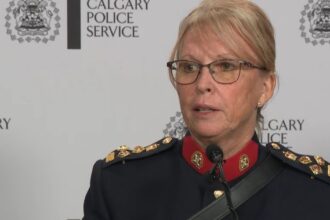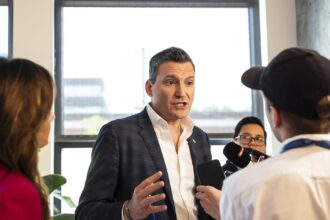In the shadowed corridors of global power, Canada stands at a crossroads that extends far beyond the looming uncertainty of another potential Trump presidency. Former Bank of Canada governor Mark Carney delivered this sobering assessment during a recent foreign policy conference in Ottawa, where he outlined a stark reality many Canadian policymakers have been reluctant to confront.
“The challenges to Canadian foreign policy are not Donald Trump,” Carney stated with characteristic directness. “The challenges are more fundamental and would exist regardless of who is in the White House next January.”
Carney, whose economic expertise traverses continents after his tenure at both the Bank of Canada and Bank of England, pointed to deeper structural shifts reshaping the international landscape. While a second Trump administration would certainly present distinct challenges for Canadian diplomacy, Carney emphasized that fixating solely on personality politics misses the broader geopolitical transformation underway.
The economic titan highlighted three fundamental challenges Canada must navigate regardless of who occupies the Oval Office. First, the accelerating fragmentation of the global economic order, with trading blocs increasingly organized around security concerns rather than pure economic efficiency. Second, the emergence of what he termed a “geopolitical premium” affecting everything from energy prices to supply chain resilience. And third, the growing divergence between American and Canadian economic interests, particularly in energy and industrial policy.
“Canada needs to recognize that U.S. economic interests are increasingly diverging from our own,” Carney explained. “This isn’t about any individual president’s policies – it’s about fundamental shifts in economic priorities and national security calculations.”
His comments come at a particularly vulnerable moment for Canada’s foreign policy apparatus. Recent polling shows 61% of Canadians believe the country lacks sufficient influence in global affairs, while 71% express concern about Canada’s preparedness for significant international challenges.
Foreign Affairs Minister Mélanie Joly, who also addressed the conference, acknowledged these concerns while defending the government’s approach to international engagement. “We recognize the world is changing rapidly, and Canada must adapt its diplomatic and economic strategies accordingly,” Joly said, pointing to recent efforts to strengthen ties with Indo-Pacific nations and diversify trade relationships.
However, Carney’s analysis suggests more fundamental recalibration may be necessary. He highlighted how Canada’s traditional position as a middle power thriving in a rules-based liberal order faces unprecedented pressure as great power competition intensifies. The former central banker specifically noted Canada’s vulnerability in sectors like critical minerals, advanced manufacturing, and energy – areas where geopolitical considerations increasingly override purely economic calculations.
“The notion that we can simply navigate these waters by maintaining our traditional approach is increasingly questionable,” Carney warned. “Canada needs to develop more robust capabilities to defend its economic and security interests in this new environment.”
The warnings come amid heightened attention to Canadian economic security following recent Chinese interference allegations and growing concerns about technological dependence. Defence Minister Bill Blair recently announced increased investment in Arctic sovereignty and cybersecurity capabilities, acknowledging the changing threat landscape.
For everyday Canadians, these shifts have tangible implications. From supply chain disruptions affecting consumer goods to energy security concerns and shifting employment patterns in trade-exposed sectors, the abstract realm of foreign policy increasingly intersects with kitchen table issues.
As Canada navigates this challenging terrain, Carney’s message serves as both warning and call to action. The fundamental question facing Canadian policymakers isn’t simply how to manage potential diplomatic turbulence during a second Trump presidency, but rather: How can Canada reshape its foreign policy architecture to thrive in a world where the post-Cold War order is rapidly dissolving before our eyes?










